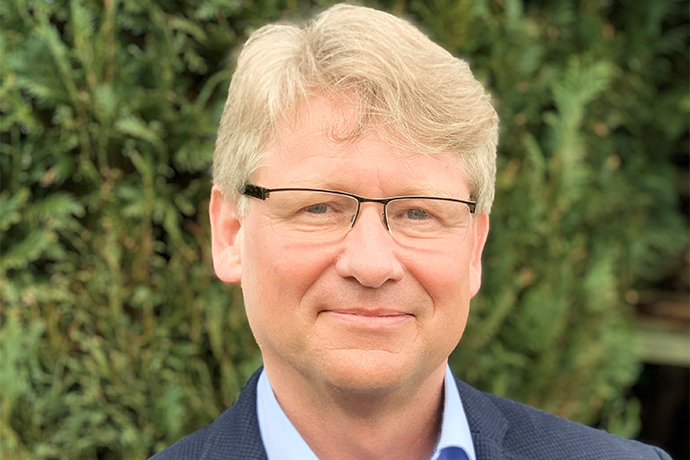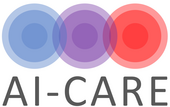
Head of the Research Department AI in Medical Image and Signal Processing
Prof. Dr. Heinz Handels
Organizational unit
AI in Medical Image and Signal Processing
Address
(Lübeck)

Publications
All publicationsProfile
Short Biography
Prof. Dr. rer. nat. habil. Heinz Handels is head of the Research Department Artificial Intelligence in Medical Imaging at the German Research Center for Artificial Intelligence in Lübeck since 2021 and director of the Institute of Medical Informatics at the University of Lübeck since 2010. Previously, he was appointed as C4 professor for Medical Informatics at the University of Hamburg in 2003, where he led the Institute of Medical Informatics located at the Medical Center Hamburg-Eppendorf until 2010. From 1992–2003 he worked as postdoctoral researcher at the Institute of Medical Informatics at the University of Lübeck, where he headed the group Image Processing and Pattern Recognition in Medicine. In 1999 he completed his habilitation and received the Venia Legendi for Medical Informatics at the University of Lübeck. In 1991, Prof. Handels received his doctorate (Dr. rer. nat.) at RWTH Aachen University. In 1987, he successfully completed his diploma studies in computer science as well as his studies in mathematics, physics and computer science for the teaching profession of secondary school I/II at the RWTH Aachen University.
His main research interests at the DFKI and the Institute of Medical Informatics at the University of Lübeck are the development of problem-optimized, adaptive image computing methods and their integration into hybrid image processing systems to support medical diagnostics and therapy. His current methodological work focuses on machine learning methods and deep learning networks for automatic analysis and recognition of different disease patterns, lesions, biomarkers, organs, tissues, etc. in medical images and image sequences, which for medical support are combined with medical image processing methods and visualization techniques. A listing of his publications on Google Scholar can be found at https://scholar.google.de/citations?hl=de&user=39hYEG8AAAAJ.
Academic Education and Scientific Career
- since 2021 Scientific Director at DFKI, Head of the DFKI Research Department Artificial Intelligence in Medical Imaging in Lübeck
- since 2010 Full Professor (W3) and Director, Institute of Medical Informatics, University of Lübeck
- 2003–2010 Full Professor (C4) and Director, Institute of Medical Informatics at the Medical Center Hamburg-Eppendorf, University of Hamburg
- 1999 Habilitation in Medical Informatics, University of Lübeck
- 1992–2003 Postdoctoral Research Assistant, Institute of Medical Informatics, University of Lübeck
- 1987–1992 Research Assistant, Institute of Medical Statistics and Documentation (now: Institute of Medical Informatics), RWTH Aachen University
- 1991 Doctorate (Dr. rer. nat.), Faculty of Mathematics and Natural Sciences, RWTH Aachen University
- 1987 First state examination in computer science, physics and mathematics for the teaching profession at secondary level II/I, RWTH Aachen University
- 1987 Diploma in Computer Science with a minor in Physics, RWTH Aachen University
Honors
- 2019 Teaching Award of the University of Lübeck
- 2018 BVM Award, 2nd prize in the category “Best Scientific Paper”, German Workshop on Medical Image Computing 2018 (BVM), Erlangen
- 2017 BVM Poster Award, German Workshop on Medical Image Computing 2017 (BVM), Heidelberg
- 2016 Honorable Mention Poster Award, SPIE Medical Imaging 2016, Image Processing Conference, San Diego, USA.
- 2015 BVM Award, 2nd prize in the category “Best Scientific Paper”, German Workshop on Medical Image Computing 2015 (BVM), Lübeck
- 2015 BVM Poster Award, German Workshop on Medical Image Computing 2015 (BVM), Lübeck
- 2014 BVM Poster Award, German Workshop on Medical Image Computing 2014 (BVM), Aachen
- 2011 BVM Award, 1st prize in the category “Best Scientific Paper”, German Workshop on Medical Image Computing 2011 (BVM), Lübeck
- 2010 Honorable Mention Poster Award, SPIE Medical Imaging 2010, Image Processing Conference, San Diego, USA
- 2010 Varian Poster Award, 41st Scientific Meeting of the German Society for Medical Physics (DGMP) 2010, Freiburg
- 2009 Honorable Mention Poster Award, SPIE Medical Imaging 2009, Visualization, Image-guided Procedures and Modeling Conference, San Diego, USA
- 2007 BVM Award, 3rd prize in the category “Best Scientific Paper”, German Workshop on Medical Image Computing 2007 (BVM), Lübeck
- 2006 GMDS Poster Award, 51st Annual Meeting of the German Association for Medical Informatics, Biometry and Epidemiology (GMDS) e.V., Leipzig
- 2006 BVM Award, 2nd prize in the category “Best Scientific Paper”, German Workshop on Medical Image Computing 2006 (BVM), Hamburg
- 2006 BVM Poster Award, German Workshop on Medical Image Computing 2006 (BVM), Hamburg
- 2005 BVM Poster Award, German Workshop on Medical Image Computing 2005 (BVM), Heidelberg
- 2003 BVM Award, 1st prize in the category “Best Scientific Paper”, German Workshop on Medical Image Computing 2003 (BVM), Erlangen
- 1995 DAGM Award 1995, German Conference for Pattern Recognition (DAGM-Symposium), Bochum
- 1994 Honorable Award Pattern Recognition 1994, German and Austrian Conference for Pattern Recognition (DAGM- & ÖAGM-Symposium), Vienna, Austria
- 1994 RSNA Certificate of Merit, 80th Scientific Assembly and Annual Meeting of the Radiological Society of North America (RSNA), Chicago, USA
- 1991 Honorable DAGM Award, German Conference for Pattern Recognition (DAGM-Symposium), Munich
Memberships
- Member of the German Informatics Society (GI)
- Member of the German Association for Medical Informatics, Biometry and Epidemiology (GMDS)
- Member of the German Society for Computer- and Robot-Assisted Surgery (CURAC)
- Member of the BVM committee of the conference Image Processing for Medicine
Offices
- Since 2020 Dean, MINT Sections of the University of Lübeck
- Since 2011 Head of the Bachelor's/Master's study program in Medical Informatics at the University of Lübeck
- 2016–2020 Associate Dean, MINT Sections of University of Lübeck
- 2019 Conference Chair, German Workshop on Medical Image Computing 2019, Lübeck
- 2015 Conference Chair, German Workshop on Medical Image Computing 2015, Lübeck
- 2013 Conference Chair, 58th Annual Meeting of the German Association for Medical Informatics, Biometry and Epidemiology e.V. (GMDS), Lübeck
- 2011 Conference Chair, German Workshop on Medical Image Computing 2011, Lübeck
- 2006 Track Chair, World Congress of Medical Physics and Biomedical Engineering 2006, Munich
- 2006 Conference Chair, German Workshop on Medical Image Computing 2006, Hamburg
- 2001 Conference Chair, German Workshop on Medical Image Computing 2001, Lübeck
- 2000 Program Committee Chair, International Telemedicine Symposium MEDICOM 2000, RheinAhrCampus Remagen, Bonn
- 1993–1994 Secretary of the German Association for Pattern Recognition (DAGM)
SimPROLEG
Development of an AI-supported software tool based on bio- / structural-mechanical replacement models to improve and shorten the design process of prosthetic leg socketsThe Essentials in 30 Seconds
The SimPROLEG project pursues the goal to improve and make the development of customized leg prosthesis sockets more efficient through AI-based simulation of the loads in…

APONA
Assistenzsystem zur Prozessoptimierung in der NotaufnahmeDas APONA-Projekt stellt eine innovative Antwort auf das wachsende Problem der Überlastung in den Notaufnahmen deutscher Krankenhäuser dar. Angesichts der zunehmenden Patientenzahlen und der damit…

AnoMed
Kompetenzcluster Anonymisierung für medizinische AnwendungenSowohl in der Krankenversorgung in Kliniken als auch bei der Aufzeichnung von Gesundheitsdaten mit Smart-Geräten im privaten Bereich fällt eine große Menge medizinischer Daten an. Diese Daten können…

AI-CARE
KI-unterstützte, versorgungsnahe Nutzung von KrebsregisterdatenJedes Jahr werden in Deutschland ca. 500.000 Krebsdiagnosen gestellt, die als ca. 500 Millionen neu erfasster Datenfelder mit relevanter klinischer Information in den Krebsregistern abgebildet werden.…

KIBA
Al-assisted motion analysis and therapyThe aim of the project "Al-assisted motion analysis and therapy (KIBA)" is to establish a research infrastructure for AI-based motion analysis and therapy optimization. The AI laboratory will be used…